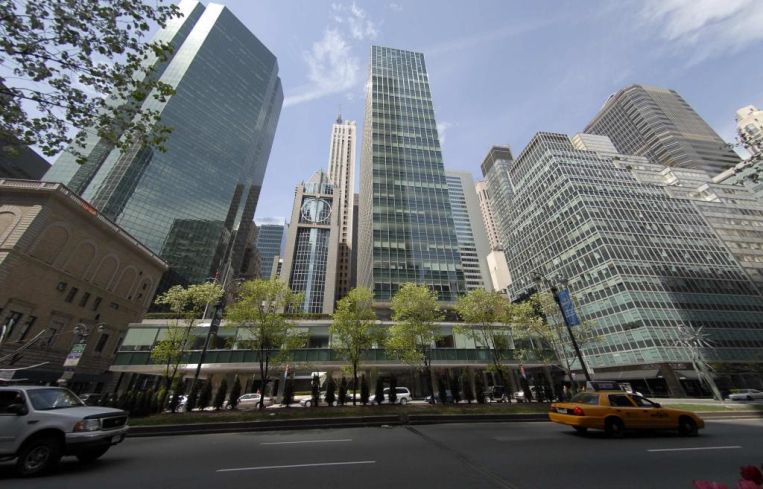Not All is Lost for Lever House as RFR Persists in Loan Search
By Danielle Balbi July 10, 2015 1:23 pm
reprints
Following a report that lenders have been unwilling to refinance RFR Realty‘s $98 million mortgage on the Lever House office tower at 390 Park Avenue, the real estate firm’s efforts are not a lost cause given the competitive lending environment and skyrocketing rents in Midtown Manhattan, several sources told Commercial Observer.
RFR is currently seeking a new loan to refinance the defaulted debt, which was originated by Credit Suisse First Boston in March 2005, according to one person familiar with the deal who asked not to be identified.
“Based on the rents in that market, the incredible location and special nature of the asset, while not simple, I believe it could be financed right now given the opportunity,” said Andrew Singer, chairman and chief executive officer of the New York-based mortgage brokerage The Singer & Bassuk Organization. Mr. Singer worked with RFR on a deal in the late 1990s to secure $60 million in construction financing for the firm’s Empire condominium project at 188 East 78th Street.
A recent report from Nomura Holdings, referencing commentary from special servicer CWCapital Asset Management, put the loan back in the headlines, with concerns of a scheduled ground lease rent increase “from $6 million annually to more than $20 million in 2023 significantly outpacing the $16 million to $18 million that the property generates in income.”
“Regarding a claim that they are doing okay on the mortgage and are looking to line up something new—the mortgage matured in March so they are already four months over when it should have been retired,” said Lea Overby, the head of CMBS research at Nomura.
“Strictly speaking, they are in default so that does indicate that people are not rushing to give them new financing on this,” she added. “Our take is that it is probably going to be difficult given the noise going on with the ground lease. It’s tough to figure out how big the cash flows are going to be to underwrite a mortgage.”
The iconic tower, located between East 53rd and East 54th Streets, is currently seeing rents in the $160 per square foot range with minimal availability, another person familiar with the matter said on the condition of anonymity.
“The building is producing sufficient cash flow to pay debt service right now with a nice margin,” Ms. Overby noted. “The ratio between the cash flow and debt they have to pay is 1.33—one-third extra than what they need to just service the debt. From that perspective, the building is completely capable of supporting the mortgage in place, so from that point, the property is performing under the terms of the old mortgage—the only issue is this mortgage has matured.”
RFR’s Aby Rosen and Michael Fuchs, as well as Harry Lis, were listed as the primary investors on the landmarked office building when the 10-year, $110 million loan was originated. The loan, which now carries a balance of $98 million, was sent to special servicer CWCapital in December 2014 for imminent maturity default, as CO previously reported, and ultimately matured in March 2015.
The property initially raised concerns when it was placed on the servicer watchlist in August 2014. Alcoa, a metals manufacturing tenant that occupied more than one-third of the rentable square footage this time last year, “vacated more than a designated minimum amount of square footage,” according to Nomura’s report.
The 390 Park Avenue loan is the largest remaining asset backing the CSFB 2005-C2 CMBS deal and represents more than 48.3 percent of the loan pool’s remaining collateral, according to data from Trepp.
“The ground lease rent language is really going to hurt the ability to sign loans for tenants on that space,” said Sean Barrie, an analyst with the real estate finance research firm, referencing Nomura’s report.
“It’s kind of a boom or bust situation with this loan comprising so much of the deal, so it obviously places more pressure on the ability to pay off at a majority,” Mr. Barrie said. “Cumulatively [the deal has seen] 15.4 percent bond loss of the original balance which is a bit high. Ideally you don’t want to see any losses, but below 5 percent is okay.”
Representatives for RFR and CWCapital declined to comment.



